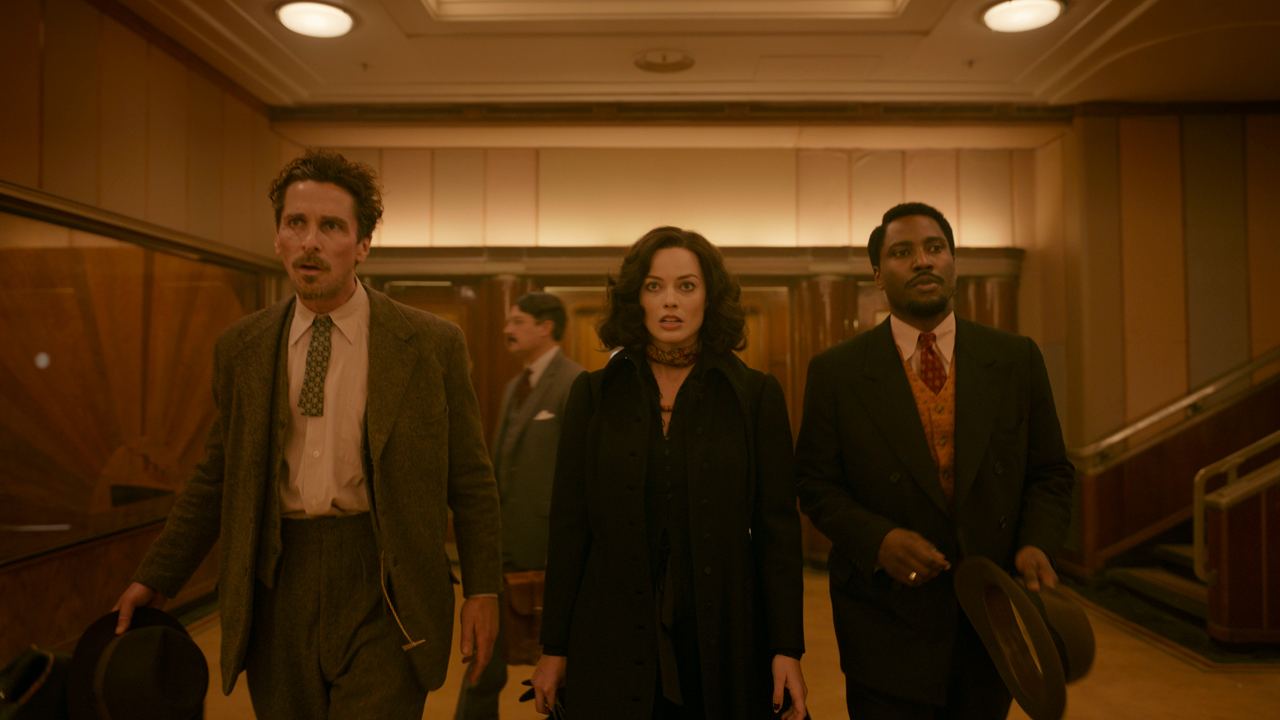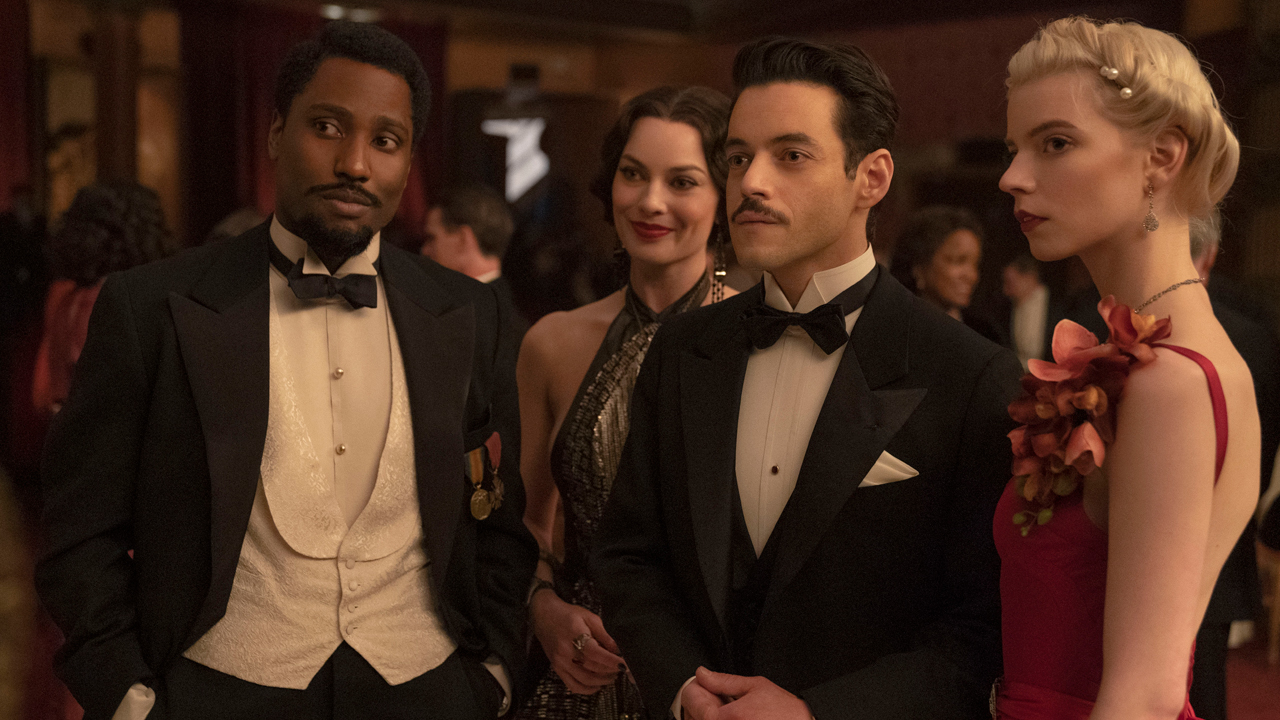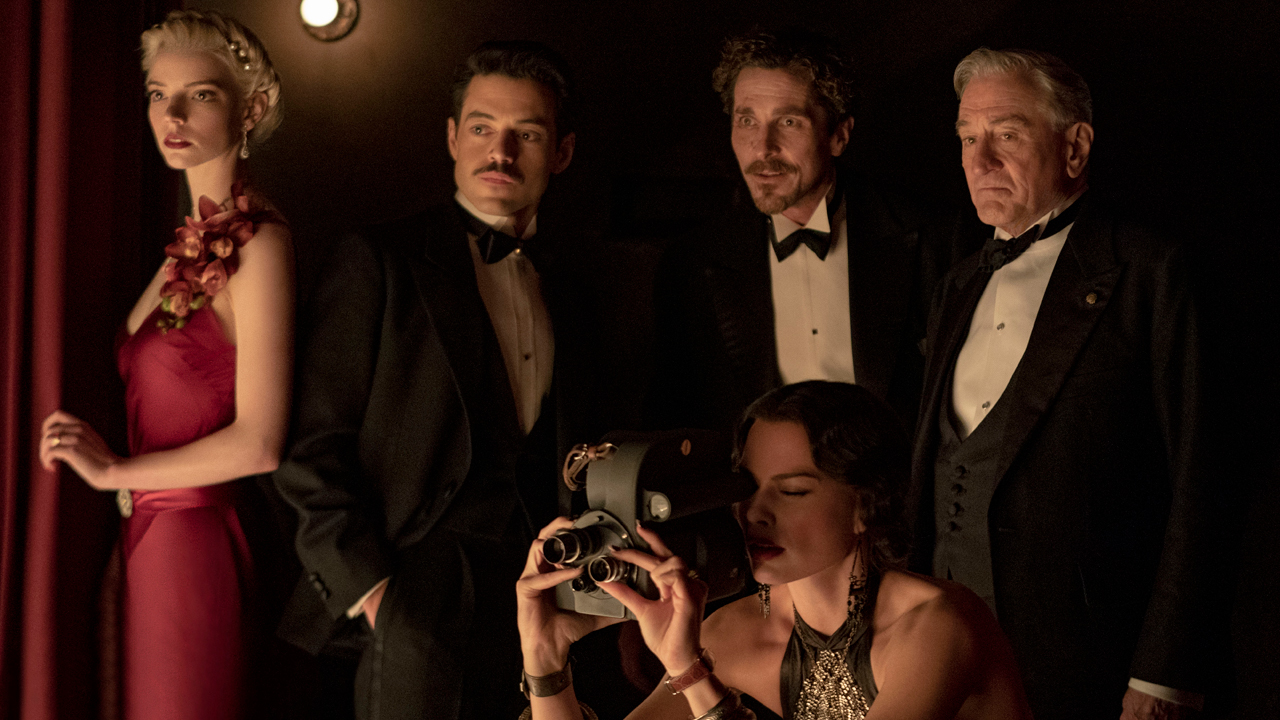Amsterdam Ending Explained: Why The Senator Was Murdered, And The True Story Behind The Star-Studded Mystery
Spoiler alert!

Your Daily Blend of Entertainment News
You are now subscribed
Your newsletter sign-up was successful
SPOILER WARNING: The following article contains massive spoilers for Amsterdam. If you have not yet watched the movie, proceed at your own risk!
Who killed Senator Bill Meekins, and why did they do it? Those are the two questions at the core of David O. Russell’s Amsterdam, and it’s the responsibility of three friends – played by the great Christian Bale, Margot Robbie, and John David Washington – to get the answers. As they search for the truth, the story takes a number of twists and turns, but it all comes out at the end in the movie’s big climax.
To do a full dive into the star-studded mystery-driven movie, we’ve put together this feature taking a look at Amsterdam’s ending – not only addressing the answers to the aforementioned questions, but also relating the film back to the true events that inspired it. Before we dig into analysis, let’s start with a recap of what happens in the movie’s third act.

What Happens At The End Of Amsterdam
The climax of Amsterdam kicks off at the long-awaited veteran’s gala, where the trio of protagonists has laid a trap. Through their investigating, they have learned that there is a movement growing in America that is hoping to overthrow the presidency and install a dictatorship, and they are led by the mysterious Committee of the Five. This fascist-favoring faction hopes that the respected General Gil Dillenbeck (Robert De Niro) will join them and be the leader of their cause – but what they don’t know is that Dillenbeck is vehemently opposed to their values and has partnered with Dr. Burt Berendsen (Christian Bale), Valerie Voze (Margot Robbie), and Harold Woodsman (John David Washington) to foil their plot.
While the gala proceeds, Dillenbeck has a meeting with members of the Committee of the Five and convinces them that his speech to the crowd will be delivered for their benefit – all while Valerie secretly films their conversation. When he does take the stage, the respected military leader not only exposes the reason why Senator Bill Meekins (Ed Begley Jr.) was assassinated, but denounces the fascist movement that is hoping to topple the Franklin D. Roosevelt administration. The assassin (Timothy Olyphant) who killed Meekins’ daughter (Taylor Swift) attempts to shoot Dillenbeck, but Burt gets in the way – and he ends up being unharmed due to the bullet not penetrating his much-hated back brace.
It’s further revealed that Tom (Rami Malek) and Libby Voze (Anya Taylor-Joy) are not only involved at the highest levels of the plot, actually sending Burt, Harold and Valerie to Dillenbeck as Trojan horse recruiters, but also that Tom has been poisoning Valerie for years and gaslighting her into thinking that she’s been sick. Valerie has a fantasy of shooting Tom through the face, but it’s an impulse that she doesn’t end up acting on. Sadly, it’s revealed that Tom was never arrested for his involvement in the planned coup.
At the very end, Harold and Valerie make the decision to go back to the place where they were happiest – the eponymous Amsterdam – and Burt stays behind in New York to pursue his new relationship with Irma St. Clair (Zoe Saldaña).
Your Daily Blend of Entertainment News

Why Was Bill Meekins Assassinated?
Amsterdam ends with the main characters stopping proto-Nazis from trying to topple the United States government, but the story really begins because of two friends caring for another. Burt and Harold met during the war because of Bill Meekins, and it’s their immense respect for him that drives them to try and figure out why he was killed.
It’s revealed in an autopsy performed by Irma early in the movie that the senator was given doses of poison over a long period of time, ultimately resulting in his death, but the motive behind this assassination is what confounds Burt and Harold. As it turns out, Dillenbeck knows the reason, and he exposes the truth during his speech at the veteran’s gala.
Dillenbeck tells the crowd that Senator Meekins was in Italy and witnessed Benito Mussolini strike and kill a child with a car and did not stop. Given Mussolini’s growing prominence and association with fascism, the Committee of the Five deemed Meekins a risk to reveal what he saw, and the call was made to order his assassination.

What Is The True Story Behind The Film?
Amsterdam opens with the statement “A lot of this really happened,” and while that leaves the door open for a lot of fictionalization, it is noteworthy that there is a lot of truth within the core of the story. Specifically, there actually was a conspiracy in the early 1930s to overthrow the government, and it’s commonly referred to as the Business Plot or the Wall Street Putsch.
Movie-goers who stick around for the end credits of Amsterdam will get to watch footage of Retired Marine Corps Major General Smedley Butler, who is the man that General Gil Dillenbeck is based on for the film. In the early/mid-1930s, Butler was approached by a group of wealthy businessmen hoping to build a fascist organization with a membership of military veterans, and Butler responded to their offer by relaying the plans to the FBI and then testifying against them in front of the United States House of Representatives Special Committee on Un-American Activities.
A final report from the congressional committee confirmed that there was an attempt at creating a fascist organization that had intentions to try and stage an American coup, but the names of the rich businessmen Butler tried to expose were not mentioned and they were not called to testify.
Amsterdam – which has received mixed reviews from critics – is now playing in theaters everywhere (you can purchase tickets via Fandango). For a peek at what’s coming to the big screen and streaming between now and the end of December, check out our 2022 Movie Release Calendar, and our 2023 Movie Release Calendar provides a preview of all the exciting titles that are set to come out next year.

Eric Eisenberg is the Assistant Managing Editor at CinemaBlend. After graduating Boston University and earning a bachelor’s degree in journalism, he took a part-time job as a staff writer for CinemaBlend, and after six months was offered the opportunity to move to Los Angeles and take on a newly created West Coast Editor position. Over a decade later, he's continuing to advance his interests and expertise. In addition to conducting filmmaker interviews and contributing to the news and feature content of the site, Eric also oversees the Movie Reviews section, writes the the weekend box office report (published Sundays), and is the site's resident Stephen King expert. He has two King-related columns.
